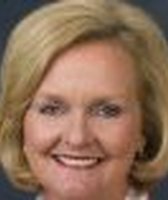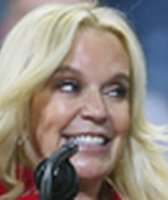Stand up for the facts!
Our only agenda is to publish the truth so you can be an informed participant in democracy.
We need your help.
I would like to contribute
Rick Scott and Bill Nelson argued over their records and accused the other of misrepresenting the facts in their first Florida U.S. Senate debate Tuesday, repeating the attacks already worn into voters’ heads through waves of 30-second commercials.
Democrats hoping to regain control of the Senate are relying on Nelson, the Democratic incumbent, to win a fourth term. But Republicans in the state are buoyed by the hopes of Scott, a former health care executive who oversaw relative economic prosperity during eight years as governor and has invested millions of dollars of his personal fortune into his campaign.
Scott described Nelson, 76, as a career politician with little to show for it. Nelson said Scott, 65, was out of touch with Floridians on the biggest issues of the day.
Click here to read this story in Spanish.
The debate was taped in English at Telemundo51 in Miramar and will air on Telemundo stations at 7 p.m. Oct. 2. NBC6 in Miami will also make the debate available in English on its website.
Sign up for PolitiFact texts
There was plenty to fact-check.
Immigration
Nelson spun the debate’s opening question about immigration into an attack on Scott’s embrace of President Donald Trump, noting that many immigrant children remain separated from their families as a result of the Trump administration’s "zero tolerance" policy.
Nelson claimed Scott "was silent" on the issue — but that is not accurate. Scott spoke against separations and blamed Congress. Scott, however, did not publicly condemn Trump, even though the separations were a result of his administration’s policy.
Two days before Trump’s June 20 executive order to halt family separations, Scott said in a statement that he did "not favor separating families," and said lawmakers had failed to secure the borders, "which has resulted in this chaos." Scott followed up a day later with a June 19 letter to the secretary of Health and Human Services, which had custody of the children, reiterating those points.
Scott went on to portray Nelson as having voted for "open borders."
Nelson has not said he’s for open borders. Scott is referencing Nelson’s support for the Keep Families Together Act, which all Senate Democrats have cosponsored. The bill would prohibit children from being separated from their parents within 100 miles of the U.S. border with the exception of situations like abuse or neglect.
Taxes
Scott repeated a debunked attack that Nelson voted for higher taxes over 300 times.
That’s False. The 300-time total includes non-binding resolutions, which cannot change the tax law. It also includes multiple votes on a single piece of legislation. The claim also neglects that Nelson has, on occasion, voted for lower taxes.
Nelson challenged Scott’s claims of an improved economy, saying that 44 percent of Florida families "do not make enough money to make ends meet."
The statistic comes from a 2017 analysis by the United Way of Florida. The report found that more than 4 of every 10 households in Florida "could not afford basic needs such as housing, child care, food, health care, and transportation in 2015." That 44 percent figure includes not only the 14.5 percent of households that earn less than the federal poverty level but another 29.5 percent of Florida households that are considered working poor.
Health care
Nelson criticized Scott’s efforts to block key parts of the Affordable Care Act, the 2010 health care law. Nelson said 800,000 Floridians do not have health insurance as a result of Scott "not promoting and pushing in the Legislature the expansion of Medicaid."
Scott flip-flopped on the issue during his eight years as governor.
Scott initially said Florida would not expand Medicaid, citing longterm costs to the state. But Scott shifted in February 2013, saying he supported expanding Medicaid as a "compassionate, common-sense step forward."
However, it wasn’t one of his legislative priorities, and the Legislature ended up rejecting an expansion. He also didn’t promote the idea during his 2014 re-election campaign.
In 2015, he seemed to come out against expansion in comments he made about the state’s money troubles related to a separate federal health care program called the Low-Income Pool.
When reporters pressed Scott to clarify whether this meant he no longer supports expanding Medicaid, he said, "I like the program we have right now."
Guns: NRA ratings
As the candidates debated, Fred Guttenberg, father of 14-year-old Jaime who was killed in the Marjory Stoneman Douglas shooting, watched in the audience. The moderator asked whether assault rifles like the one used in the Parkland attack should be available for purchase. Nelson cited his support of comprehensive background checks and criticized Scott’s good grades from the National Rifle Association.
"My opponent has an A-plus rating with the NRA, and he has passed more NRA-backed legislation than any other governor in the history of this state," Nelson said.
Scott received an A-plus with his endorsement from the NRA Political Victory Fund during his 2014 re-election campaign.
In a June 2014 memo, Florida NRA lobbyist Marion Hammer praised Scott for signing five pro-gun bills in one term, saying Scott "has now signed more pro-gun bills into law — in one term — than any other governor in Florida history."
This year could bring a different grade. Scott signed gun restrictions into law after the Parkland shooting that raised the age to buy a gun in Florida from 18 to 21, adding a three-day waiting period. The NRA quickly fired back with a lawsuit.
Guns: Background checks
Scott put the pressure back on Nelson, saying Nelson voted against legislation to "help our state use the national background check."
The attack is misleading. Scott was referring to a 2013 vote on an amendment related to the Safe Communities, Safe Schools Act of 2013, the bipartisan proposal following the school shooting in Newtown, Conn.
On April 17, 2013, the Senate voted on a pair of amendments related to the Safe Schools Act. Both failed. One, sponsored by Sens. Joe Manchin, D-W.Va., and Pat Toomey, R-Pa., was a compromise intended to replace stricter language in the Safe Schools Act. The other was a last-minute substitution amendment from Republican Sens. Charles Grassley of Iowa and Ted Cruz of Texas that was introduced the day of the vote.
The votes generally fell on party lines with Nelson voting in favor of Manchin’s amendment with Democrats and against the substitute amendment that was largely supported by Republicans.
Manchin’s amendment sought to ensure that all individuals who should be prohibited from buying a firearm are listed in the National Instant Criminal Background Check System, and provide a consistent background check process. The goal of the Manchin-Toomey legislation was to expand background checks to include sales at gun shows. The measure failed 54-46.
Like Manchin-Toomey, the Republican-sponsored amendment won a majority of votes (52-48), but not the needed 60 to avoid a filibuster.
The Grassley amendment would have provided incentives for states to submit relevant mental health records to the National Instant Criminal Background Check System and required federal courts to do so. It also would have allocated money for prosecuting violations of the background check requirement. But it did not expand the requirement to cover any new firearms sales, such as at gun shows or over the Internet.
Nelson voted for the Safe Schools Act, along with most Democrats. Most Republicans opposed the measure, which ultimately failed.
Education
The candidates presented two very different narratives about Florida’s public education funding.
Nelson said, "He (Scott) savaged education. He cut $1.3 billion dollars out of education the first year."
Scott countered, saying, "You have record funding for K-12 education."
Who’s right?
Well, neither.
Nelson’s claim about Scott cutting $1.3 billion overlooks that in each of the next seven years with Scott as governor, the education budget grew.
Scott’s assessment of record funding, similarly, is only partially accurate. Florida's K-12 education funding hasn’t kept up with its pre-recession pace. Increases in the current K-12 budget are strictly for school safety and mental health.
Elections and voting
While worries that a foreign government could attempt to influence the 2018 election is a national concern, it has particular meaning in Florida, where Nelson has raised alarm about Russians hacking into local voting systems.
Scott criticized Nelson for crying wolf with minimal evidence, before describing his own work to open up voting access.
"We have the most number of early voting days now in the history of the state," Scott said.
Scott is citing an increase in early voting that he signed into law in 2013. But that glosses over Scott and the Legislature’s decision to cut back on early voting in advance of the 2012 election.
In 2011, the Legislature passed a sweeping elections law that reduced the amount of days for early voting from 14 to eight. The state also got rid of early voting on the Sunday before election day.
After long election lines at some Florida polls in November 2012 made Florida again the butt of national jokes, the Legislature in 2013 revamped the state’s early voting law to give supervisors more flexibility to set hours. The bill set a minimum of eight days of early voting and a maximum of 14 days.
In hours, the state currently allows for a total of 168 hours. That is a record.
Environment
Nelson and Scott cast the other as neglecting Florida’s environment.
Scott, Nelson said, "has drained the water management districts of funding. He even abolished the Department of Community Affairs, which was the growth management agency."
The budgets of Florida’s five water management districts were collectively cut by over $700 million about a year into Scott’s first term. The governor has the final say over the water management districts’ budgets.
However, in the years since 2012, the districts’ budgets have started to rise again. The overall budget of the five districts is no longer $700 million less than the pre-Scott budget.
In 2011, Scott and the Legislature abolished the Department of Community Affairs, which for decades reviewed development plans in cities and counties. Scott preferred a more streamlined process that would encourage economic development.
Scott pointed the finger at Nelson for the state’s ongoing algae problem, arguing Nelson did nothing for decades.
"The algae problem is 100 percent tied to the fact that Sen. Nelson does a campaign ad in 1990, said he's going to deal with the algae. And now, how many years later, he has never done anything to get us the money to fix the dike at Lake Okeechobee, which is a 100 percent federal project."
In 1990 as a candidate for governor, Nelson aired an ad saying he "will fight to stop the poisoning of lakes and streams across this state. Lake Okeechobee is dying because of the massive dumping of pollutants." Nelson lost a Democratic primary to Lawton Chiles, who defeated Republican incumbent Bob Martinez.
The Miami Herald explained this July that efforts to reroute the polluted water in Lake Okeechobee and clean up the Everglades has been an exercise in fits and starts over a generation, spanning state and federal administrations from both parties.
This summer the Army Corps of Engineers approved the $1.4 billion reservoir project funded by the state and federal government to store water south of Lake Okeechobee to avoid releasing polluted water from the lake.
The Herald wrote that Nelson "can't point to many victories he's had at the federal level. Since his election to the Senate in 2000, Nelson has grappled with the twin forces of slow-moving federal support and fading enthusiasm from the Florida Legislature."
Scott has also been criticized for his actions, including signing a bill that repealed a law mandating septic tanks receive regular inspections.
A few words about us
If you watch the debate, you will hear the candidates reference PolitiFact and our fact-checks of the race. Neither did so perfectly.
Nelson dinged Scott for his Truth-O-Meter ratings, saying an independent fact-checker deemed Scott’s TV ads "all False or either Pants on Fire false." We don’t rate ads — we rate claims. And those aren’t the only ratings he’s gotten.
Scott, for instance, earned a Mostly True for a claim in an ad that said Nelson missed 45 percent of national security hearings.
Scott’s defense of his campaign messaging wasn’t any better. Scott called PolitiFact "part of the Democratic Party."
That’s incorrect. We are independent journalists who decide what to fact-check, when to fact-check it, and what it should be rated once we complete our reporting. We were started as a project of the Tampa Bay Times in 2007 and won the Pulitzer Prize for our coverage of the 2008 presidential election. And in 2018, we moved from the Times to the Poynter Institute for Media Studies, a nonprofit institution dedicated to educating journalists.
We have a detailed story about how we’re funded, our ethics policy and our reporting process that might be worth a read. We rely only on on-the-record sources, we provide a list of every source we speak to alongside every article we write, and every fact-check is vetted by a panel of three editors who decide what to rate the specific claim we’re analyzing.
That process has served Scott well, and not so well.
Since 2010, 33 percent of the claims we’ve checked from the Florida governor have rated True or Mostly True, while 22 percent have rated False or Pants on Fire.
Keep track of all of our fact-checks from the race here. Hear something from the race that needs a fact-check? Email asherman@poynter.org
Our Sources
Orlando Sentinel, "Medicaid expansion looms big in Florida," Dec. 17, 2012
Miami Herald, "Sebelius spreads the word on healthcare reform in Miami-Dade;
Healthcare," Sept. 17, 2013
PolitiFact Florida, Rick Scott opposed Medicaid expansion before he supported it, Feb. 25, 2014
PolitiFact, "Gov. Rick Scott shifts again on Medicaid expansion," April 7, 2015
PolitiFact, "Did Sen. Bill Nelson vote for higher taxes 349 times? No," July 5, 2018
Tampa Bay Times, "Bill Nelson and Rick Scott swap brickbats on family separation policy," June 20, 2018
Text of S.3036 - Keep Families Together Act, accessed Oct. 2, 2018
PolitiFact, "Stewart claims that the stimulus bill is one-third tax cuts," Feb. 10, 2010
NRA-ILA, "Alert: Governor Rick Scott makes history signing 5 pro-gun bills," June 23, 2014
NRA-PVF, "Vote Rick Scott for Governor in Florida," 2014
Sun Sentinel, "NRA’s grades for Florida candidates are out. Who got an A+?," July 11, 2018
Gov. Rick Scott campaign, Debate statement on Homestead detention, gun legislation, Medicaid, Oct. 2, 2018
Florida Legislature, House Bill 7013, 2013
Interview, Lauren Schenone, Gov. Rick Scott campaign spokeswoman, Oct. 2, 2018
Interview, Sarah Revell, Division of Elections spokeswoman, Oct. 2, 2018
Interview, Nate Evans, U.S. Sen. Bill Nelson campaign spokesman, Oct. 2, 2018
Interview, Paul Lux, Okaloosa Supervisor of Elections and president of the Florida State Association of Supervisors of Elections, Oct. 2, 2018
Gov. Rick Scott letter to HHS Secretary, June 19, 2018
Tampa Bay Times, Rick Scott: I oppose separating families at border, but ‘chaos’ due to inaction on border security, June 18, 2018
U.S. Senate, vote summary on Manchin Amendment No. 715, April 17, 2013
U.S. Senate, vote summary on Grassley Amendment. No. 725, April 17, 2013
PolitiFact, "PAC ad says Kelly Ayotte voted to fix background checks on gun sales," May 15, 2013



 PolitiFact Rating:
PolitiFact Rating: 
 PolitiFact Rating:
PolitiFact Rating: 




































